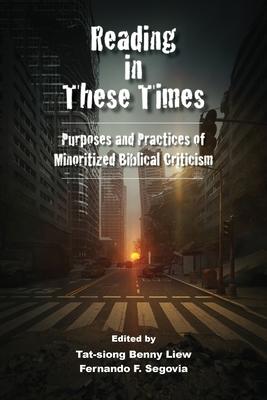In this follow-up to They Were All Together in One Place? (2009) and Reading Biblical Texts Together (2022), biblical scholars from different racial/ethnic minoritized communities move beyond defining and pursing cross-cultural interpretation to investigating how spatial-geographical and temporal-historical locations affect the purposes and practices of minoritized biblical criticism today. Through an examination of a range of contemporary issues from HIV/AIDS to US immigration policy, contributors establish that how and why they engage the Bible are the result of the intersection of social and cultural factors. Contributors Cheryl B. Anderson, Hector Avalos+, Jacqueline M. Hidalgo, Tat-siong Benny Liew, Yii-Jan Lin, Vanessa Lovelace, Francisco Lozada Jr., Roger S. Nam, Aliou Ciss Niang, Hugh R. Page Jr., Jean-Pierre Ruiz, Fernando F. Segovia, Abraham Smith, and Vincent L. Wimbush demonstrate that interpretations carry broader implications for society and that scholars have ethical and political responsibilities to their communities and to the world.

Reading in These Times
In this follow-up to They Were All Together in One Place? (2009) and Reading Biblical Texts Together (2022), biblical scholars from different racial/ethnic minoritized communities move beyond defining and pursing cross-cultural interpretation to investigating how spatial-geographical and temporal-historical locations affect the purposes and practices of minoritized biblical criticism today. Through an examination of a range of contemporary issues from HIV/AIDS to US immigration policy, contributors establish that how and why they engage the Bible are the result of the intersection of social and cultural factors. Contributors Cheryl B. Anderson, Hector Avalos+, Jacqueline M. Hidalgo, Tat-siong Benny Liew, Yii-Jan Lin, Vanessa Lovelace, Francisco Lozada Jr., Roger S. Nam, Aliou Ciss Niang, Hugh R. Page Jr., Jean-Pierre Ruiz, Fernando F. Segovia, Abraham Smith, and Vincent L. Wimbush demonstrate that interpretations carry broader implications for society and that scholars have ethical and political responsibilities to their communities and to the world.